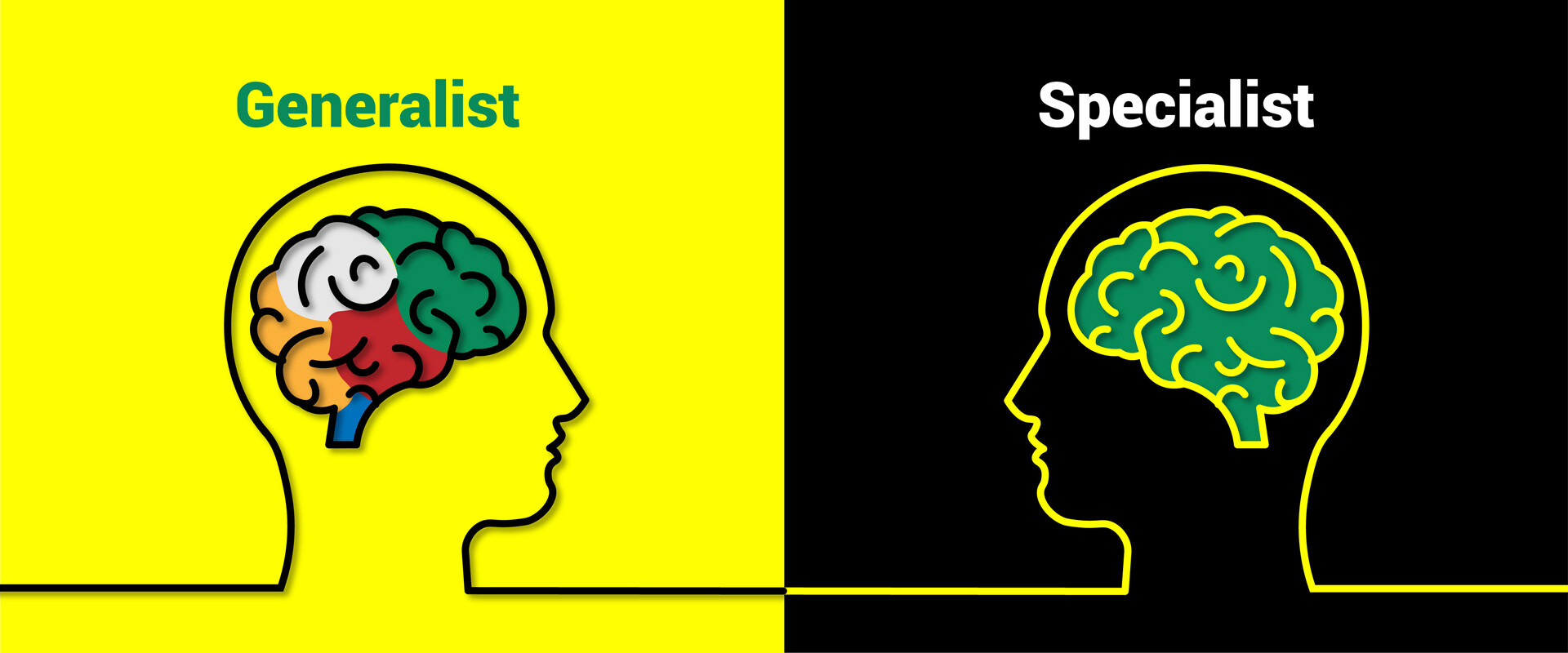Subscribe to our newsletter
Don't miss out on our latest updates.
Being a leader in any organization is no easy task. Not only are leaders responsible for their actions, and the ramifications thereof, they are also responsible for the behavior and actions of their team members. Running a team like a well-oiled machine is no easy task, as more often than not it doesn't run as well as a leader may like. There will be times that there will be conflict in the workplace, which could, if left unchecked, threaten to derail the productivity and profitability of the organization, and the morale of the team. This is where leadership conflict management and resolution skills for team leaders come to the fore.


They are qualities that set a good and a great leader apart. Success requires teamwork and clear communication. When leading a team, one of your primary responsibilities is making sure your team works well together and when it doesn't, you're able to resolve the conflict.
Often, individuals with varying personalities comprise these teams. The ability to recognize potential conflicts between individual team members and develop conflict resolution strategies to resolve them quickly is essential for projects to proceed successfully.
Leaders recognize that understanding conflict management can help them resolve issues before they occur or resolve existing conflicts in such a way that your team can still work together as a cohesive unit.

To reduce misunderstandings and ambiguity, communicate your intentions and desires to not just one party, but rather every employee and as such all parties involved in the work environment.
Ask what your colleagues need to work their best, and do your part to meet their needs or – at a minimum – avoid doing that which you know will cause harm. If you suspect conflict amongst team members, a leader must nip it in the bud quickly as problems will not just disappear, but rather linger if not.
Failing to act as a leader when you spot a potential problem can create problems down the line.
Active listening is a proven leadership skill for conflict resolution, and involves developing a skill for listening to what is verbally and nonverbally communicated. Often, conflicts arise because two parties misunderstand or mishear what the other person is saying.
Leaders know how to manage conflict and understand that active listening helps ensure that the sender and receiver understand one another and can more easily move towards a resolution. This is half the battle when it comes to being a mediator in resolving conflicts.
Emotional intelligence is the ability to perceive, manage, and control emotions not just in oneself, but also in others. Understanding, expressing, and effectively handling emotions are vital for conflict resolution. EI skills help improve communication and relationships and therefore is included in the vital skills for conflict resolution.
Problem-solving skills help leaders or parties in conflict recognize and address the root causes of conflicts by identifying the issues and exploring possible solutions.
Leaders can apply the 5 problem-solving steps or 5 conflict management styles for conflict resolution: identify the problem, list possible solutions, evaluate the solutions, choose one solution, and implement it.
People can find creative and equitable solutions to their conflicts by applying problem-solving skills.
Negotiation is trying to reach an agreement between two or more parties. It can be used to resolve disputes and every conflict and is integral to conflict resolution.
Negotiation skills can be learned and practiced, and one can apply them in various situations. Therefore, it is vital to have effective negotiation skills to help achieve successful outcomes in any case.
Negotiation is one of the powerful skills for conflict resolution, and it can help bring parties together to work toward a common goal.
Observation is the key to effective conflict management. When a leader observes a conflict, one can understand it better and find solutions that work for both parties. You must also be able to keep track of your emotions and reactions to remain impartial.
The skills required to be a practical observer will vary depending on the type of conflict you are dealing with.
Self-awareness helps you understand your thoughts, feelings, and behavior, enabling you to identify the underlying causes of conflicts. Once you thoroughly understand the source of conflict, you can begin resolving it using other conflict management skills and techniques. This vital skill also helps you in identifying any biases you might have as a manager.
A conflict resolution team is especially important for effective conflict resolution, and must have the skills to work together effectively. One of the skills that are essential for conflict resolution is team awareness.
This skill helps managers understand their team dynamics and how they interact with each other. In addition, it can help resolve conflict before it escalates into a severe issue.
Conflict occurs through any disagreement and can cause rifts, so team awareness helps a manager to make their teams work through their differences and reach a consensus on a solution.
Conflict can mean different things to different people, but what is universal is that resolving conflict is a challenging but essential part of any relationship. It can be frustrating when an argument escalates quickly to the point of no return.
But patience is critical to resolving conflict successfully. Effective leadership means that the best leaders need to take their time and not rush into a decision.
When one is trying to resolve a conflict, it helps to circle back and understand the other person’s point of view to effectively manage things and develop a solution that works for both parties.
By listening carefully and taking time to think about the situation, you can diffuse tense situations and build trust between you and the other person.
All in all, patience can be one of the key skills for conflict resolution.
It is often difficult to stay impartial when you manage conflict, but in any conflict, a good manager should never take sides. Being impartial means that you can listen to both sides of the story and act accordingly.
A problem at hand can't be resolved unless the historical issues are addressed. In this type of situation, it's best to separate the conflict from the people that are involved with it.
Effective leaders understand that they shouldn't focus on people and their personal characteristics, instead, they should look at the problem and center their energy on finding a solution.
Heavy is the head that wears the crown. Being a true leader is no easy task, and nor too is managing interpersonal or interdepartmental conflict within an organization.
When it comes to conflict, being cool, calm, collected, impartial and able to see the wood for the trees, are skills every leader/manager worth their salt must posses or face the consequences of lost productivity and other knock-on effects that may also affect the profitability of the company.
Many leaders know that their role in solving workplace conflict is to help employees involved in the conflict to clarify their needs and guide them to a fair solution that both sides will accept.
All conflict situations can lead to division, so as part of the conflict resolution, be sure to address all types of different conflict right away; however, don't rush when it comes to working out a resolution.
Whilst many say that leaders are born and not made, what is apparent is that modern leaders can be coached at a university like Nexford, that offers BBA and MBA programs, on how to spot conflict early and develop ways of managing conflict in the workplace before things spiral out of control.
Nexford's Leadership Management and Teams course focuses on how to create a personal and shared vision and communicate effectively with teams, as a leader, a manager and a team member.
On the course learners will develop a personal philosophy of leadership, management and membership in the global workplace through a personal inventory and assessment, as well as apply conflict management skills to a personal and organizational setting.
Complimenting that, Nexford's Leadership and Organizational Development course examines individual and group interaction and helps learners gain a deeper understanding of how human behavior drives organizational behavior and development.
On the course learners will apply various leadership styles, conflict management strategies, and change models to organizational situations to resolve conflict at hand.

Conflict management is an umbrella term for the way we identify and handle conflicts fairly and efficiently and is necessary for managing diverse teams.
The goal is to minimize the potential negative impacts that are involved in a conflict and can arise from disagreements and increase the odds of a positive outcome.
Strategies for managing conflict are the ways a manager can engage with their employees productively when it seems like there is a risk of conflicts and arguments emerging.
People naturally deal with conflicts in different ways, but some can be better than others when it comes to keeping everyone involved in the situation happy and productive.
By combining your own natural conflict management style with any of the styles below, you can develop a range of responses to arguments and clashes in the workplace.
As no two days are ever the same, so too are the types of conflict that may occur in the office environment. Knowing how to spot them, and stop them early can help to resolve a conflict in double quick time.
Experts maintain that there are 5 conflict types that occur in the workplace and they are leadership conflicts, work style conflicts, creative conflicts, personality conflicts, and task-based conflicts.
Understanding conflict allows leaders to manage it more effectively and can provide a path to accomplishing positive outcomes.
Conflict can lead to division, so every leader needs to understand that conflict management training can be an active force that will allow leaders grow healthy relationships within their organizations which can ultimately result in effective team work and productivity and make it easier to manage workplace disputes.
Depending on the situation, there are many skills and strategies leaders must look at for managing conflict and resolve disputes in the workplace.
Leading from the front is just one and taking control of a situation before a molehill turns into a mountain. But if you had to put your finger on it, what exactly does it take for a leader to increase their resolution efforts and resolve disputes in the workplace?
Experts would maintain that as a leader, even though you can initiate a constructive conversation, the effort always involves dialogue and discussion among the people involved.
Conflict is inevitable, but by adopting a positive attitude toward the conflict, leaders find the best in people and in the situation, and maintain their sense of humor. Sounds easy enough, but more often than that it isn't necessarily so.
Don't miss out on our latest updates.
Invest in yourself and your future. Discover our range of degrees, courses, and certificates to achieve your goal

10 Ways to Develop and Improve Leadership Skills 2026 1. Develop active listening to understand ...
Read more →
What is the Internet of Things? According to the Internet of Things Agenda, IoT is a system of ...
Read more →
An effective team building strategy incorporates many elements, but defining team roles and ...
Read more →
To paraphrase the great bard, William Shakespeare, ‘To specialize or not to specialize, that is the ...
Read more →
No matter what camp you find yourself in, what is an undeniable truth is that all great leaders ...
Read more →
Throughout the ages there have been legendary leaders that have fundamentally redefined business or ...
Read more →